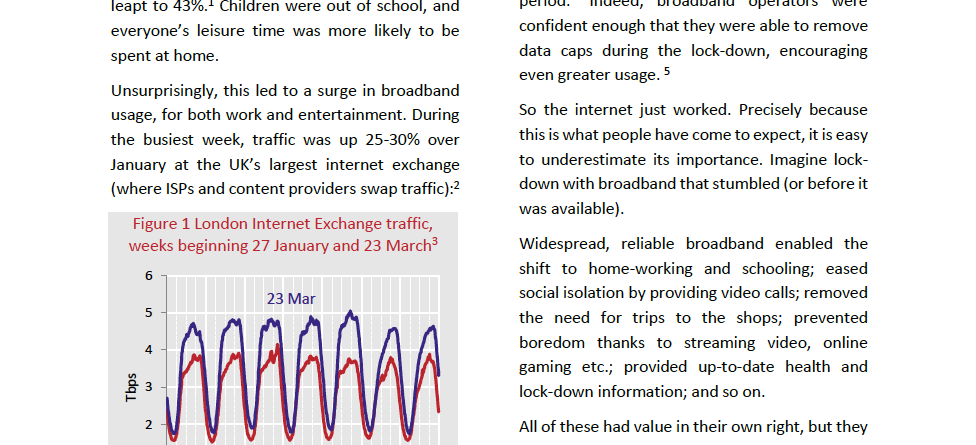Connectivity and Levelling Up
THE GOVERNMENT’S anticipated White Paper on reducing regional economic inequalities in the UK has arrived with a reassuring 320-page thud. “Levelling up” – as both the programme and half the government department charged with delivering it have since been named – is now officially the central objective and the moral mission of this administration.
An important commitment demands a detailed plan of action, and the White Paper sets out twelve missions be achieved by 2030, including:
- A globally competitive city, rising employment and productivity in every region;
- A UK Shared Prosperity Fund in place of EU Structural Funding, with spending decisions devolved;
- R&D investment outside the Greater South East to by 40% higher;
- Public transport in every region to be significantly closer to the standards of London;
- Higher standards of literacy and numeracy for primary school leavers;
- More high-quality skills training for every region;
- Existing gaps in life expectancy between regions to have been closed;
- Increased pride and satisfaction in people’s local areas;
- More home owners, fewer substandard rental properties;
- Homicide, serious crime and neighbourhood crime to be down everywhere;
- London-style Mayors for every region that wants one.
In among these pledges, the government is also committing that “By 2030, the UK will have nationwide gigabit-capable broadband and 4G coverage, with 5G coverage for the majority of the population”.
Project Gigabit, the DCMS programmes designed to deliver faster fixed connectivity, is well underway, but the White Paper finally sets the target for fixed connectivity, equating it to availability in 85% of premises by 2025 and “as close as possible to 100%” by 2030. With commercial provision expected to account for 80% coverage, the government’s commitment could easily be dismissed as timid. But this would be to misunderstand the huge challenges of connecting those parts of the country where commercial investment is unlikely to flow and where existing copper lines and infrastructure are not a part of the solution.
On 4G, the government will press ahead with its target of achieving 95% coverage by 2025 through the Shared Rural Network Programme. On 5G, the commitment is less clear, with a pledge only that “a majority” of the population will have a 5G signal by 2027.
But it is perhaps what the White Paper does not say about the potential for greater regional economic equality through improved connectivity that is most interesting. The White Paper notes that better connectivity helps the development of high-value sectoral clusters. It also declares that “high quality digital infrastructure can deepen local labour markets through remote working, making it more attractive for both workers and companies to locate regionally”. But this is one of just three mentions of remote working in the entire White Paper – and the other two are in reference to the effects of COVID-19 lockdowns.
The future of work is, perhaps understandably, a topic that the authors of the White Paper had no intentions of trying to solve. It is also true that, with pandemic restrictions falling away and more people return to daily commuting and office working, the current situation is perhaps too fluid for a document that is concerned with setting clear measures of success for the next eight years. More ominously, advocates of the pre-pandemic status quo have a great deal invested in a UK where most people travel to work that takes place in its own dedicated physical space and where city centres are geared towards servicing this daily influx. With some national newspapers mounting what appears like a campaign to reverse the move toward remote working (a trend which long predates anti-COVID restrictions) it is perhaps understandable why the government chose to give such little emphasis to what may become a key driver of a more regionally economically equal Britain. The growth of remote working could do more – and do more quickly – to reverse the dominance of London and the South East than any amount of improvements in town centres, education standards and bus routes. Yet it is something we may not hear the government talking about at all.







